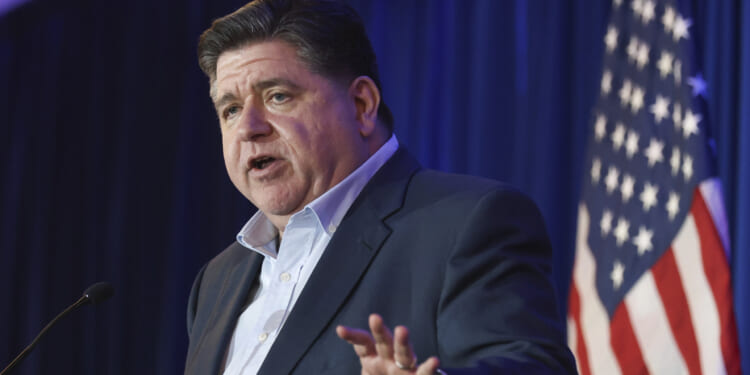If Gov. J.B. Pritzker lets Illinois join the federal scholarship tax credit program, public school students could receive grants for tutoring, books and other academic services.
Public school students in Illinois and across the country could soon benefit from scholarship funds to help them find a tutor, get special lessons or help with curriculum.
But Gov. J.B. Pritzker and Illinois leaders must first say “yes” to the Federal Scholarship Tax Credit program, established by the Educational Choice for Children Act. That means saying “no” to the false arguments manufactured by teachers unions and other opponents of the program.
Here’s how the program would benefit public school students.
Public school students can use the funds for additional educational services
The federal scholarship tax credit program would benefit public school students who may be looking for ways to supplement their education.
Starting in 2027, the scholarship funds can be used by students in public schools for educational services such as tutoring, additional educational classes, books, online educational materials, fees for standardized or college admissions exams and fees for dual enrollment programs that allow high school students to earn college credit.
This means public school students who may be struggling in certain academic areas or needing extra help or materials won’t have to leave their local public schools to find the support or opportunities they need. They can get money for the services from private donations, but only if Illinois politicians allow them to do so.
The most recent state test scores for Illinois show only 41% of students in third through eighth grade read at grade level in spring 2024. In math, 28% were proficient. For 11th graders in Illinois, only 31% were reading at grade level in spring 2024 and 26% performed math proficiently.
Illinois students are struggling. The federal scholarship tax credit offers families a way to provide the academic support their children need without having to leave their local public school. If Illinois doesn’t claim its share of the donations, the money will go to students elsewhere.
Millions of Illinois students could benefit
Students are eligible if their family income is within 300% of the area median income.
That means a significant share of Illinois families and students would be eligible for the federal scholarship program.
There are about 1.3 million students eligible from Illinois’ five most populous counties – Cook, DuPage, Lake, Will and Kane – who could receive support through the program. Other populous counties also could benefit: Madison County has about 44,700 students eligible, while McHenry County counts nearly 57,000 students.
Students will be left behind if Pritzker fails to sign up Illinois
Illinois residents will be able to obtain a tax credit under the federal scholarship tax credit program, even if Illinois fails to opt in. That’s because residents can receive tax credits by donating to a scholarship organization in another state.
But no Illinois students would be eligible to receive grants unless Illinois opts in. Illinois donations would help other states’ students while Illinois students would get nothing.
That’s not a good look for teachers unions or other opponents of the program. They are standing in the way of Illinois children receiving donor funds for tutoring and other academic services.
If opponents succeed, Illinois children will suffer because teachers unions oppose any competition to their basic public school model. That includes funds their students could use to supplement their public-school education with tutoring or advanced placement courses.
Gov. Pritzker and Illinois leaders should join the program
Illinois students need an educational boost as evidenced by the poor test results in public schools. Denying public school students this help because special interests are spreading myths would be wrong and cruel.
So, the question is, will Pritzker and Illinois lawmakers stand with students, or will they stand with special-interest teachers union bosses?










